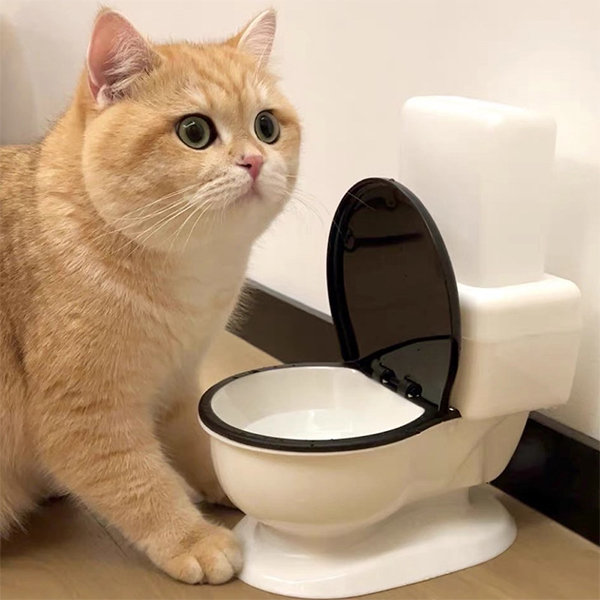Just about everyone will have their own theory about Can You Flush Cat Poo or Litter Down the Toilet?.

Introduction
As pet cat owners, it's important to be mindful of just how we take care of our feline friends' waste. While it may seem hassle-free to flush cat poop down the bathroom, this method can have destructive effects for both the environment and human health and wellness.
Environmental Impact
Purging feline poop introduces harmful pathogens and parasites right into the water system, positioning a significant danger to marine communities. These pollutants can negatively influence aquatic life and compromise water quality.
Health and wellness Risks
Along with ecological concerns, flushing feline waste can likewise pose health and wellness risks to people. Cat feces might consist of Toxoplasma gondii, a parasite that can create toxoplasmosis-- a possibly serious ailment, especially for pregnant females and people with weakened immune systems.
Alternatives to Flushing
Fortunately, there are more secure and much more responsible methods to deal with cat poop. Think about the complying with options:
1. Scoop and Dispose in Trash
The most usual method of getting rid of cat poop is to scoop it right into an eco-friendly bag and throw it in the trash. Make certain to utilize a dedicated clutter inside story and take care of the waste without delay.
2. Usage Biodegradable Litter
Select naturally degradable pet cat clutter made from materials such as corn or wheat. These trashes are eco-friendly and can be securely gotten rid of in the garbage.
3. Bury in the Yard
If you have a yard, think about hiding cat waste in an assigned location far from vegetable yards and water resources. Make sure to dig deep sufficient to stop contamination of groundwater.
4. Install a Pet Waste Disposal System
Buy a family pet garbage disposal system especially designed for cat waste. These systems utilize enzymes to break down the waste, minimizing odor and ecological impact.
Final thought
Responsible family pet ownership extends beyond providing food and sanctuary-- it also includes proper waste monitoring. By refraining from flushing pet cat poop down the bathroom and going with different disposal techniques, we can minimize our environmental footprint and shield human health and wellness.
Why You Should Never Flush Cat Poop Down the Toilet
A rose by any other name might smell as sweet, but not all poop is created equal. Toilets, and our sewage systems, are designed for human excrement, not animal waste. It might seem like it couldn’t hurt to toss cat feces into the loo, but it’s not a good idea to flush cat poop in the toilet.
First and foremost, assuming your cat uses a litter box, any waste is going to have litter on it. And even the smallest amount of litter can wreak havoc on plumbing.
Over time, small amounts build up, filling up your septic system. Most litter sold today is clumping; it is made from a type of clay that hardens when it gets wet. Ever tried to scrape old clumps from the bottom of a litter box? You know just how cement-hard it can get!
Now imagine just a small clump of that stuck in your pipes. A simple de-clogger like Drano isn’t going to cut it. And that means it’s going to cost you big time to fix it.
Parasitic Contamination
Believe it or not, your healthy kitty may be harboring a nasty parasite. Only cats excrete Toxoplasma in their feces. Yet it rarely causes serious health issues in the cats that are infected. Most people will be fine too if infected. Only pregnant women and people with compromised immune systems are at risk. (If you’ve ever heard how women who are expecting are excused from litter cleaning duty, Toxoplasma is why.)
But other animals may have a problem if infected with the parasite. And human water treatment systems aren’t designed to handle it. As a result, the systems don’t remove the parasite before discharging wastewater into local waterways. Fish, shellfish, and other marine life — otters in particular — are susceptible to toxoplasma. If exposed, most will end up with brain damage and many will die.
Depending on the species of fish, they may end up on someone’s fish hook and, ultimately on someone’s dinner plate. If that someone has a chronic illness, they’re at risk.
Skip the Toilet Training
We know there are folks out there who like to toilet train their cats. And we give them props, it takes a lot of work. But thanks to the toxoplasma, it’s not a good idea.

I stumbled upon that blog post about Don’t flush cat feces down the toilet when browsing on the search engines. I beg you take the time to promote this content if you enjoyed reading it. Many thanks for your time. Visit again soon.
Click Here